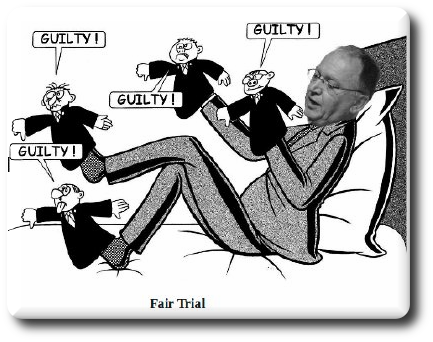

THE European Patent Office (EPO) has lost touch with the law, just like Team UPC and various factors that push towards a 'unitary' patent. The law does not seem to matter to these people, constitutions are ripped to shreds, lies are habitual, and votes are rigged.
"The term "computer-implemented inventions" or CII is just a euphemism for software patents. They try to disguise these as "AI", "cloud", "4IR", "devices" and nowadays even "blockchain"."Earlier today Gregory Bacon from Bristows wrote (first time they say anything in weeks) about "provisions [which] will [sic] prohibit ‘double-patenting’ i.e. protection of the same invention by an Italian national patent and a unitary patent; the possibility of such ‘double protection’ had been discussed but decided against (in contrast to the position in Germany, see Double protection and forum shopping under Germany’s draft UPC legislation)."
Well, it's not like "Germany’s draft UPC legislation" will ever turn into anything. In fact, the UPC as a whole is gathering rust and there's no progress, no news, nothing to report about it. The latest UPC spin is more of the same. There's no news from Germany or from the UK. Hence it's dead.
"It does not even obey its own rules, the national laws, international law, and the EPC."Meanwhile, the EPO continues trampling all over the law. Software patents are in principle not allowed in Europe, but here comes the EPO again (only hours ago), writing: "How to obtain patents for computer-implemented inventions in biotechnology and healthcare at the EPO?"
The term "computer-implemented inventions" or CII is just a euphemism for software patents. They try to disguise these as "AI", "cloud", "4IR", "devices" and nowadays even "blockchain". In fact, earlier today a news site published this article titled "The patenteability of blockchain technology in Europe" (nowadays or now that companies/people disguise software patents as "blockchain" to bypass the rules). To quote:
Blockchain is a software-based technology. Computer programs appear in paragraph d) of art. 52, no. 2, of the European Patent Convention, 1973, as a subject which can not constitute an invention. However, in 2005 the European Patent Office (EPO) had already granted more than thirty thousand patents related to computer programs and currently computer-implemented inventions are the subject of approximately 35% of European patent applications.
The reason for this lies in the rule laid down in paragraph 3 of that Article, which provides that computer programs, as well as all matters referred to in paragraph 2, shall not be excluded from patentability unless 'European patent application or European patent relates to such subject-matter or activities as such'.
The determination of the limits of the patentability of computer-implemented inventions in Europe is essentially the result of the decisions of the Technical Boards of Appeal (TBA) of the EPO and the interpretation thereof, of the relevant rules.